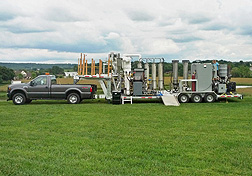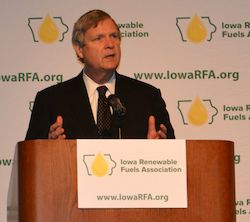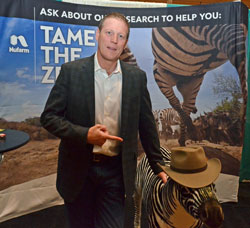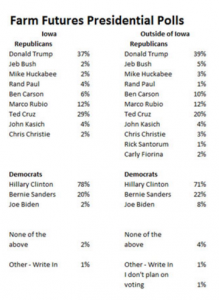Soon farmers will be able to produce bio-oil right on their farm. The renewable fuel can be produced from agricultural and food waste using a new mobile unit. The goal of USDA project is to be able to distill this bio-oil in existing petroleum refineries.

ARS scientists are testing this mobile pyrolysis system for on-farm production of bio-oil from agricultural waste.
The research team, headed by Agricultural Research Services (ARS) chemical engineer Akwasi Boateng with the Sustainable Biofuels and Coproducts Unit at the Eastern Regional Research Center in Wyndmoor, Pennsylvania, is working on a modified pyrolysis technique called “tail-gas reactive pyrolysis” (TGRP). Traditionally, pyrolysis uses very high heat and the resulting product is not compatible with current distillation equipment at petroleum biofineries due to its highly acidic and high oxygen content. The fuel also requires the addition of an expensive catalyst.
Now, however, using waste materials, bio-oils are being produced at an accelerated rate using a new high-output mobile processing unit funded by a Biomass Research and Development Initiative Grant from USDA’s National Institute of Food and Agriculture. Instead of shipping large amounts of agricultural waste to a refinery plant at high cost, the mobile reactor allows conversion of the biomass into energy-dense bio-oil right on the farm. In addition, this bio-oil is a higher quality bio-oil that is more marketable to biofuel producers than bio-oil made from traditional pyrolysis methods.
“Ideally, the biofuels added to gasoline would be identical to fuels produced at petroleum refineries,” Eklasabi told AgResearch Magazine. “The quality of TGRP deoxygenated liquids is equal to or better than the bio-oil produced by catalyst pyrolysis.” And, added Eklasabi, bringing the bio-oil one step closer to being able to be distilled at existing petroleum refineries.










